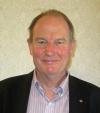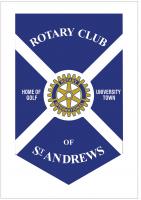Quantum Electronics
Wed, Mar 23rd 2022 at 12:50 pm - 2:00 pm
Chris Hooley from St Andrews University enlightened us.
Club members please log in for more information.
Quantum Electronics is playing an increasingly important part in our lives, yet most of us have little understanding of how. That is why the Club asked Dr Chris Hooley, Reader in Theoretical Condensed Matter Physics at the University, to enlighten members. He began by reminding them how successful conventional electronics has been in enabling the transmission and processing of information, from the telegraph through to laptops and mobile phones. There are limitations, however, one of which is the heat unavoidably generated in a conductor when electrical charge travels along it. Hence the need, for example, for laptops to incorporate a fan. The accumulation of heat in a large data centre requires extensive cooling and is a major contributor to global warming. Is there an alternative? Besides mass and charge, electrons have a third property: magnetic moment, misleadingly termed ‘spin’. In something the same way as a Mexican wave moves whilst those doing the waving remain in their places, a spin current operates by nudging the north and south magnetic poles in opposite directions without the net movement of the electrons that would produce heat. Spintronics is in its infancy but spin valves and spin transistors have already been produced. Chris himself studies naturally occurring materials, known as topological insulators, that can operate as filters, sending electrons in opposite directions according to their polarity. He was thanked for a talk that had generated light, not heat, and not sent heads spinning!
 Contact Francis Quinault about this page:
Contact Francis Quinault about this page:
'What We Do' Main Pages:
_1.jpg)
International links with Foundation to form Rotary's service avenue for improvements in International Understanding.
more
Rotaract St Andrews is a University based club sponsored by the Rotary Club of St Andrews. Check out Rotaract St Andrews Facebook page for more info
moreIn general terms the purposes of this committee are ...
moreLinks with environmental issues
more

 (1024x768) (800x600)_1.jpg)
 (2).jpg)
.jpg)

 (640x480).jpg)

.jpg)
